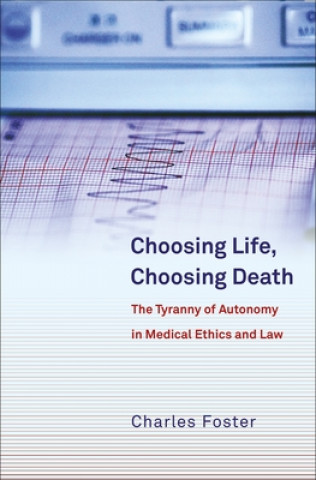
Code: 04850275
Choosing Life, Choosing Death
by Charles Foster
Autonomy is a vital principle in medical law and ethics. It occupies a prominent place in all medico-legal and ethical debate. But there is a dangerous presumption that it should have the only vote, or at least the casting vote. T ... more
- Language:
 English
English - Binding: Paperback
- Number of pages: 200
Publisher: Bloomsbury Publishing, 2009
- More about this

You might also like
-

Police First Aid Pocket Guide
36.09 zł -
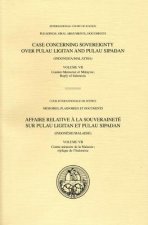
Case concerning sovereignty over Pulau Ligitan and Pulau Sipidan
794.99 zł -

American Theatre Book of Monologues for Men
63.21 zł -4 % -

At the Heart of the Empire
412.87 zł -

Teuffel's History of Roman Literature
172.50 zł -5 % -

Canada's National Defence
202.24 zł -

Clinical Application of Neuropsychological Test Batteries
288.85 zł
Give this book as a present today
- Order book and choose Gift Order.
- We will send you book gift voucher at once. You can give it out to anyone.
- Book will be send to donee, nothing more to care about.
More about Choosing Life, Choosing Death
You get 173 loyalty points
 Book synopsis
Book synopsis
Autonomy is a vital principle in medical law and ethics. It occupies a prominent place in all medico-legal and ethical debate. But there is a dangerous presumption that it should have the only vote, or at least the casting vote. This book is an assault on that presumption, and an audit of autonomy's extraordinary status. This book surveys the main issues in medical law, noting in relation to each issue the power wielded by autonomy, asking whether that power can be justified, and suggesting how other principles can and should contribute to the law. It concludes that autonomy's status cannot be intellectually or ethically justified, and that positive discrimination in favour of the other balancing principles is urgently needed in order to avoid some sinister results. 'This book is a sustained attack on the hegemony of the idea of autonomy in medical ethics and law. Charles Foster is no respecter of authority, whether of university professors or of law Lords. He grabs his readers by their lapels and shakes sense into them through a combination of no-nonsense rhetoric and subtle argument that is difficult to resist.' Tony Hope, Professor of Medical Ethics, Oxford University 'This book is unlikely to be in pristine state by the time you have finished reading it. Whether that is because you have thrown it in the air in celebration or thrown it across the room in frustration will depend on your perspective. But this book cannot leave you cold. It is a powerful polemic on the dominance of autonomy in medical law, which demands a reaction. Charles Foster sets out a powerful case that academic medical lawyers have elevated autonomy to a status it does not deserve in either ethical or legal terms. In a highly engaging, accessible account, he challenges many of the views which have become orthodox within the academic community. This will be a book which demands and will attract considerable debate.' Jonathan Herring, Exeter College, Oxford University 'This is a learned, lively and thought-provoking discussion of problems central to the courts' approach to ethical issues in medical law. What principles are involved? More significantly, which really underlie and inform the process of seeking justice in difficult cases? Charles Foster persuasively argues, and demonstrates, that respect for autonomy is but one of a number of ethical principles which interact and may conflict. He also addresses the sensitive issue of the extent to which thoughts and factors which go to influence legal decisions may not appear in the judgments.' Adrian Whitfield QC. 'Introducing the Jake La Motta of medical ethics. Foster is an academic street-fighter who has bloodied his hands in the court room. He provides a stinging, relentless, ground attack on the Goliath of medical ethics: the central place of autonomy in liberal medical ethics. This is now the first port of call for those who feel that medical ethics has become autonomized.' Julian Savulescu, Uehiro Chair in Practical Ethics, University of Oxford. "This important book offers a robust challenge to anyone, whether lawyer or 'ethicist', who sees respect for autonomy as the only game in town. It argues eloquently and effectively that, on the one hand, despite the reverence paid to it by judges, in practice the law, even in the context of consent, weaves together a number of moral threads of which autonomy is merely one, in the pursuit of a good decision. It argues on the other hand, that were the day-to-day practice of law to be guided primarily by respect for autonomy, this would be wrong. Foster concludes that whilst, 'any society that does not have laws robustly protecting autonomy is an unsafe and unhappy one', so too would be a society in which too much emphasis was placed on respect for autonomy at the expense of other important moral principles. This is essential reading for anyone interested in the role of autonomy and indeed of medical ethics, in the law." Michael Parker, Professor of Bioethics, University of Oxford
 Book details
Book details
Book category Books in English Law Laws of Specific jurisdictions Social law
297.73 zł
- Full title: Choosing Life, Choosing Death
- Subtitle: The Tyranny of Autonomy in Medical Ethics and Law
- Author: Charles Foster
- Language:
 English
English - Binding: Paperback
- Number of pages: 200
- EAN: 9781841139296
- ISBN: 1841139297
- ID: 04850275
- Publisher: Bloomsbury Publishing
- Weight: 350 g
- Dimensions: 233 × 155 × 11 mm
- Date of publishing: 27. February 2009
Trending among others
-
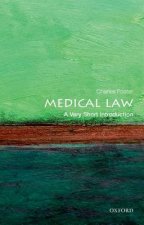
Medical Law: A Very Short Introduction
42.74 zł -23 % -

Neuroscience and Law
1283.19 zł -

Medical Law
303.98 zł -

Horrors of Vaccination Exposed and Illustrated
60.79 zł -2 % -

Under Observation: The Interplay Between eHealth and Surveillance
824.43 zł -

TASER (R) Conducted Electrical Weapons: Physiology, Pathology, and Law
672.69 zł -

Vaccine Whistleblower
77.32 zł -11 % -

SGB 2023 Sozialgesetzbuch
85.39 zł -

Resocialising Europe in a Time of Crisis
522.97 zł -

Law and Practice Relating to Charities: First Supplement to the Fourth Edition
1196.58 zł -

Democratic Foundations of Policy Diffusion
709.29 zł -

Nonclinical Safety Assessment - A Guide to International Pharmaceutical Regulations
784.71 zł -2 % -

Encyclopedia of Forensic and Legal Medicine
7624.56 zł -

EU Food Law
610.28 zł -

Protest, Property and the Commons
283.01 zł -

Food Law in the United States
790.86 zł -

Medical Device Regulatory Practices
850.35 zł -

Medical Law
232.59 zł -

Pandemics and Ethics
926.27 zł -

Handbook of Research on International Consumer Law
326.66 zł -9 % -

Handbook of Neuroethics
5275.44 zł -

Media Law
276.15 zł -

Genetic Discrimination
868.90 zł -

FDA Regulatory Affairs
988.48 zł -

Clinical Forensic Medicine
625.41 zł -

Studies In Forensic Psychiatry
151.23 zł -
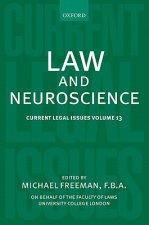
Law and Neuroscience
646.68 zł -

Social protection, growth and employment
156.67 zł -

State Registration for Nurses, Part 2
155.66 zł -

Lisbon Treaty and Social Europe
610.28 zł -

Human Cloning
157.68 zł -
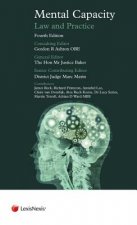
Mental Capacity
859.62 zł -4 % -

Human Embryo In Vitro
557.05 zł -

Animal Experimentation
261.13 zł -15 % -

Information Technology in Medical Diagnostics
689.53 zł -

Cure for Obamacare
27.11 zł -15 % -

COVID-19 and the Law
538.09 zł -

European Social Security Law, 6th edition
629.74 zł -

Reform and Perspectives on Social Insurance: Lessons from the East and West
829.58 zł -

Toxic Tort
144.67 zł -

Private Foundations
2477.46 zł -

Blutzucker Logbuch für Diabetiker
81.91 zł -5 % -

Antarctic Environmental Protocol and its Domestic Legal Implementation
1771.60 zł -

E-Health and the Law
944.51 zł -

Mental Health, Incapacity and the Law in Scotland
1068.33 zł -

Cell Phone Use & Health Risks
455.62 zł -22 % -

Bvr/Ahla Guide to Healthcare Industry Finance and Valuation
1270.28 zł -

Cannabis Revolution(c)
155.46 zł -5 % -

Equality Act 2010 in Mental Health
208.19 zł -1 %
safisfied customers
Since 2008, we have served long line of book lovers, but each of them was always on the first place.
Copyright! ©2008-24 libristo.pl All rights reservedPrivacyPoučení o cookies



 21 million books
21 million books Delivery 12.99 zł
Delivery 12.99 zł (32) 444 93 66 (8-15.30h)
(32) 444 93 66 (8-15.30h)